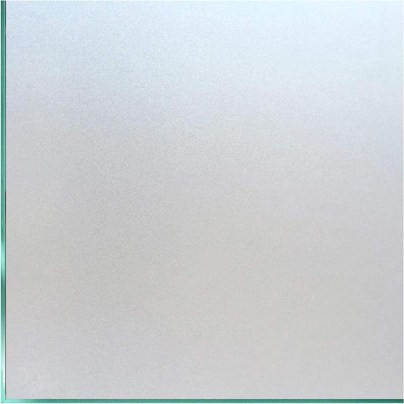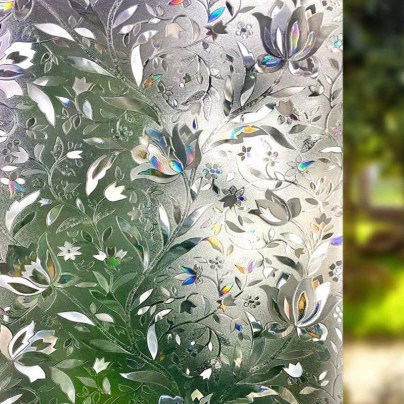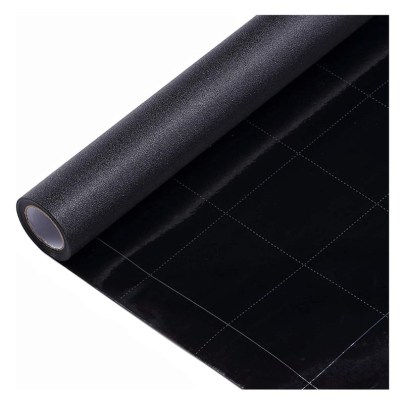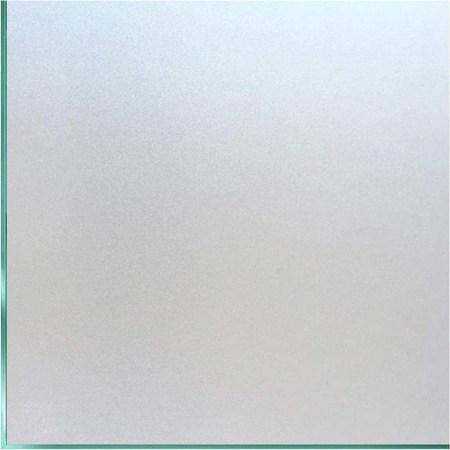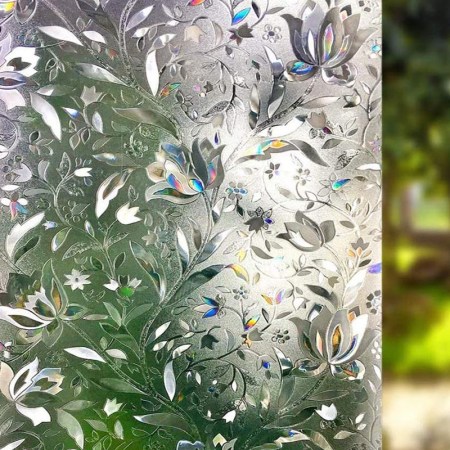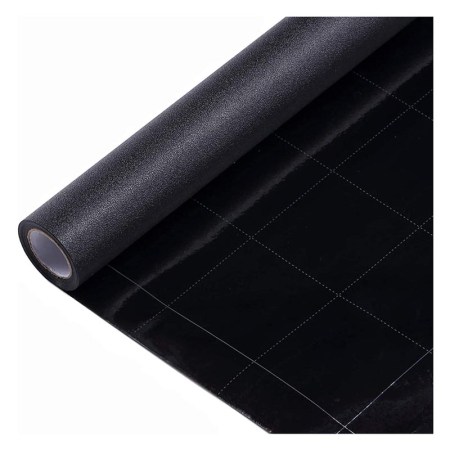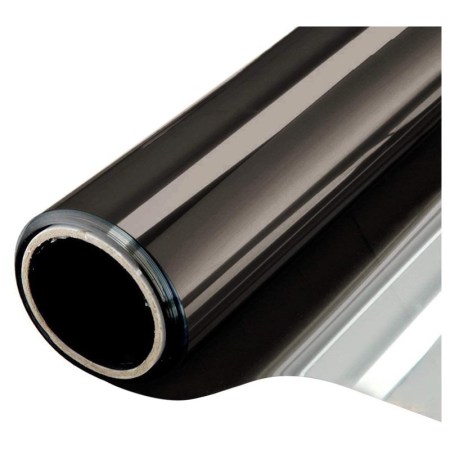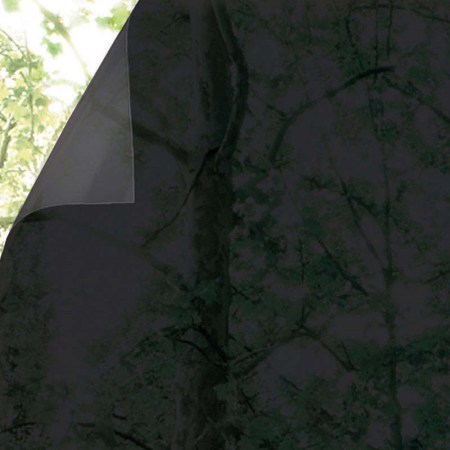We may earn revenue from the products available on this page and participate in affiliate programs. Learn More ›
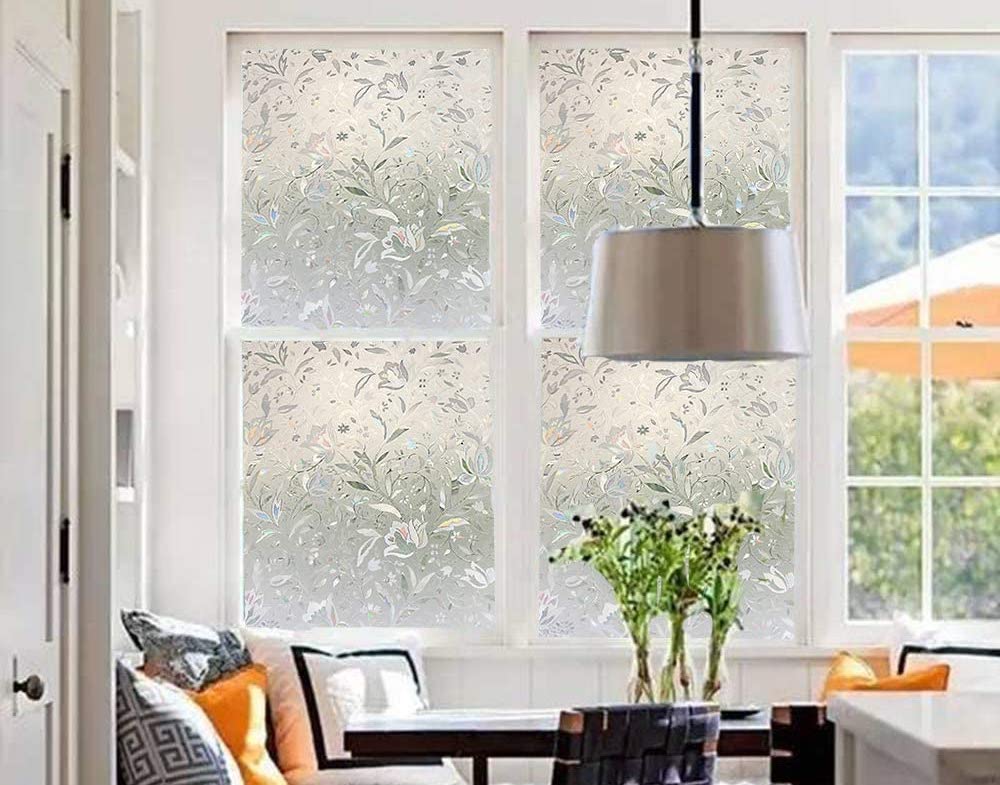
Window films are a budget-friendly, versatile alternative to curtains and blinds. Some provide a degree of privacy while letting in light, while others ensure complete one-way or two-way privacy. Some options offer energy-saving benefits as well. Films are usually quite easy to install, and they come in an array of colors, designs, and styles.
Since there are so many options, we performed hands-on testing with the following window films to find out which ones are among the very best products for providing privacy and light obstruction. After 1 week of testing, we know what they can do and what they can’t.
Keep reading to learn more about this form of home window tinting, important features to look for, and factors to consider while shopping so you can find the best window film to suit your specific needs.
- BEST OVERALL: Coavas Window Privacy Film
- BEST BANG FOR THE BUCK: Lemon Cloud 3D Window Film
- BEST BLACKOUT: Velimax Static Cling Total Blackout Window Film
- BEST ONE-WAY MIRROR: WPCTEV One-Way Mirror Window Film
- EASIEST INSTALLATION: Gila Privacy Black Static Cling Window Film
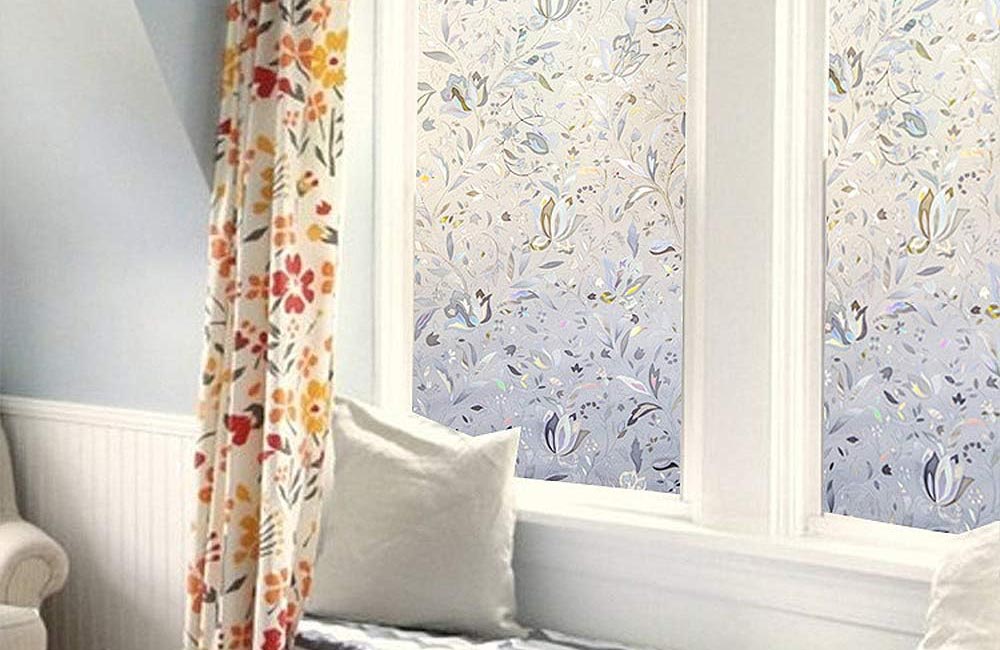
How We Tested the Best Window Films
We wanted to ensure that every window film we suggested has what it takes to make our readers happy. To do so, we performed hands-on testing with each of the window films below, evaluating them over the course of a week.
First, we installed the films to assess how easy they were to install. Next, we tested them for privacy and light blocking by placing a light behind the glass and then measuring the light output with a light meter. We used a constant light source with a light meter app and a flashlight shone through the glass to ensure that we were given readings that could be trusted. The baseline reading (with no film) was around 12,000 lumens per square meter (lux).
Then, we let them sit for a few days before checking how well they adhered to the glass. Finally, we removed them and repositioned them on other windows in the home to see how well they would readhere. Those that failed our tests were removed from the list while those that passed were given awards based on their strengths.
Our Top Picks
The following top window films not only meet all of our testing criteria, but they also were selected with price and ease of application in mind.
Note: All of the following films featured a static-cling installation, which involves spraying the surface of the glass and the film, applying the film, and smoothing out the bubbles. None of these used adhesive, so they are all reusable.
Best Overall
Coavas Window Privacy Film
See ItProduct Specs
- Type: Translucent
- Opacity: Private
- Material(s): Vinyl
- Lux: 6093
Pros
- The frosted look works with variety of styles and doesn’t clash with decor
- It was one of the easiest films to tuck into corners while applying
- It blocks up to 96 percent of the sun’s harmful UV rays
Cons
- It’s important to work any air bubbles out, or they’ll show through the translucent film
This Coavas frosted window film provides the peace of mind of almost complete privacy as well as a simple matte appearance that won’t interfere with decor. It adds a clean look to a space and provides privacy protection while still letting light shine through. The window sticker is nonadhesive, blocks 96 percent of UV rays, and helps control glare. It’s removable and reusable.
The Coavas window privacy film was our favorite overall window film in the test. It was one of the easiest to apply, being a relatively thin film that was easy to tuck into the corners of the windows. It also looked the best, offering a nice frosted look that provided plenty of privacy without clashing with decor or looking out of place. This privacy film also comes in six other colors. However, since the translucent colors don’t have patterns, it’s important to work out all of the bubbles for the best appearance.
Get the Coavas window film at Amazon.
Best Bang for the Buck
Lemon Cloud 3D Window Film
See ItProduct Specs
- Type: Decorative
- Opacity: Semiprivate
- Material(s): Vinyl
- Lux: 9399
Pros
- Stylish design provides dramatic change to a room without much of an investment
- Thick, durable film makes it highly reusable and repositionable
- Design shimmers in sunlight and provides color bursts as well as privacy
Cons
- It was somewhat difficult to install compared to other films
- The design won’t meet everyone’s tastes or decor needs
If the goal is a stained glass look that also provides privacy for a bathroom, office, kitchen, or other space, check out this Lemon Cloud window film. Its elegant floral motif and rainbow-colored film clings to exterior windows, interior doors, cabinets, and glass partitions. The colors or patterns appear after installation when light pours through the film.
Lemon Cloud’s 3D window film is a budget-friendly option for adding dramatic change to a room. It has a decorative flower pattern that shimmers with color in sunlight. It performed reasonably well with blocking light for a translucent-type film, though it’s not to be relied on for keeping sunlight completely at bay. It’s constructed with a premium vinyl material that holds up well under heat and steam.
We also liked that it was thick and durable, which did make it somewhat difficult to install, but also makes it highly reusable. As long as the flower pattern meets the shopper’s taste (it won’t for everyone), there is a lot of value in the Lemon Cloud film.
Get the Lemon Cloud window film at Amazon.
Best Blackout
Velimax Static Cling Total Blackout Window Film
See ItProduct Specs
- Type: Blackout
- Opacity: Private
- Material(s): Vinyl
- Lux: 17
Pros
- Complete blackout design keeps sunlight at bay in bedrooms or theater rooms
- Thick vinyl is easy to remove, reposition, or even reuse
- Comes with a grid on the back of the sheet to provide an easy cutting guide
Cons
- It must not be installed on double-pane windows, as per instructions
Velimax’s blackout window film prevents up to 99 percent of daylight from coming through, making it a good choice for shift workers sleeping during the day or toddlers taking a nap. The film provides two-way privacy: No one can see in, and no one can see out. The reusable film blocks UV rays, controls heat and glare, and protects furnishings from fading. It’s also reusable. Eco-conscious consumers may appreciate this film’s environmentally friendly vinyl material.
It’s also important to point out that the installation instructions state that this film must not be applied to double-pane windows, while the Amazon description states otherwise. We suspect there may be an issue with the gas between the panes heating up and expanding, so we wouldn’t recommend using it in these situations.
Beyond that issue, the Velimax was a great film. It was easy to cut, thanks to the 1-inch grid on the back of the film. It was also surprisingly easy to apply, despite the fact that we couldn’t see through it when cutting and pushing it into the corners. We also found that this film provided total light blackout, making it a great choice for theater rooms, bedrooms, and other areas where daylight might be an issue. The textured pattern completely hid any imperfections as well.
Get the Velimax window film at Amazon.
Best One-Way Mirror
WPCTEV One-Way Mirror Window Film
See ItProduct Specs
- Type: 1-way mirror
- Opacity: Semiprivate
- Material(s): Vinyl
- Lux: 1285
Pros
- Provides a mirror effect; can see through from the other side
- Very effective at blocking light and providing total privacy
Cons
- The shiny finish will show every imperfection under the film
WPCTEV’s one-way mirror film has a reflective surface that prevents those outside from seeing in. As the skies begin to darken, the film no longer provides privacy. It’s available in four reflective colors and an array of sizes. The film is nonadhesive for easy application and removal, and it’s reusable.
In addition to blocking 97 percent of UV rays, the film also blocks 85 percent of infrared rays—which carry more than half the heat from the sun—from entering the space. To reduce glare, the film allows 10 percent visible light transmittance (VLT) through the film.
For those looking for a one-way mirror effect, the WPCTEV film might be the way to go. While we didn’t find it particularly easy to install (it shows every imperfection and bubble), it does offer a finish we could see ourselves in (and see through from the other side). On top of the mirrored finish, it resists sunlight well and provides privacy. If it weren’t for the shiny finish, the imperfections wouldn’t show as readily.
Get the WPCTEV window film at Amazon.
Easiest Installation
Gila Privacy Black Static Cling Window Film
See ItProduct Specs
- Type: Blackout
- Opacity: Private
- Material(s): Vinyl
- Lux: 150
Pros
- Better-quality film than the others, making it easier to cut and install
- Blocks lots of light and provides plenty of privacy
- Can be installed on dual-pane windows when other blackout films can’t
Cons
- It’s not available in smaller sheets, so it can be difficult to work with in small spaces
For versatility and ease of installation, it’s hard to beat this Gila film. Gila’s window film uses static cling for a hassle-free installation. Remove and reinstall the film as desired to change the atmosphere in the space. The black film darkens windows, provides privacy, rejects up to 58 percent of solar energy, blocks up to 99 percent of UV rays, and reduces up to 93 percent of glare.
This film is excellent for providing total privacy and is available in one size. The manufacturer recommends purchasing the entire window film installation kit to have all the supplies necessary for a smooth finish.
Gila’s window film was by far the easiest film to install. The film is just noticeably better quality than any of the other films (and better looking than the other blackout films), which made it easier to cut with a sharp blade while tucking into the corner of the window pane. It blocked quite a bit of light without being completely blackout and provided all the privacy one might need.
It can also be used on the outside of a dual-pane window, making it safe for these windows when other darkening films are not. Keep in mind that smaller sheets are not available (36 inches wide is the smallest dimension), which could be a bit difficult to roll out and fit in smaller spaces.
Get the Gila window film at Ace Hardware or The Home Depot.
ALSO TESTED
We can’t recommend Rabbitgoo 3D Rainbow Window Tint. While the product itself does feel like it’s decent quality, it doesn’t adhere well. Both the top and bottom of the film kept curling up, even after extra cleaning and repositioning. We even installed a new sheet, but it continued to curl.
Also, the pattern is not subtle. Other than maybe a bathroom window or a child’s room, it might be too much for most homes.
Jump to Our Top Picks
Types of Window Film
Selecting the best type of window film depends both on its function and the desired look. Be creative and add a splash of color and fun patterns; or go for simple, practical films that provide privacy, protection from harmful ultraviolet (UV) rays, and light control. Explore the following options to decide which style suits your needs best.
Solar
Solar window films shield the home’s occupants and their furniture from harmful UV rays. These films block the amount of UV rays that could otherwise enter the environment, protecting skin from damage and guarding furniture from fading and aging.
While glass windows alone only block 40 percent of harmful UV rays, some window films can block up to 99.9 percent. Solar films also regulate indoor temperatures, so rooms stay cooler in summer and warmer in winter. This in turn can improve the energy efficiency of home and help save money. Finally, solar films combat and block harsh glare, a benefit when watching TV or working on the computer.
Blackout, Translucent, and Whiteout
Window films vary in the level of opacity they provide.
- A blackout film, much like blackout curtains, blocks all or nearly all of the light that would otherwise enter the room and provides two-way privacy. From the outside, these privacy window films provide a reflective appearance, while from the inside, the films look black. Because they completely darken the room, these films are a good option for night-shift workers and others who sleep during the daytime. They’re also popular with folks whose windows face a busy street or who have overly inquisitive neighbors.
- A translucent film offers a middle ground between light and privacy, letting soft light in and brightening up the space while still providing a visual barrier. Typically, translucent film gives the effect of blurred images when looking in from the outside. They are available in different patterns, colors, and shapes, such as birds or flowers. They can be used on exterior windows or interior glass windows and doors.
- Whiteout film is often used to create separation within interior spaces with the same opacity and privacy of blackout film. Instead of black, the glass looks white from both the inside and outside, providing a somewhat softer, less somber mood in the room. Apply this kind of film in private rooms like bathrooms, home offices, and hobby rooms.
One-Way Mirror
One-way mirror window films provide daytime privacy protection. Anyone trying to sneak a peek inside will see themselves reflected in the window instead, while those in the room see who’s on the other side.
At night, when the lights inside are brighter than the light on the reflective side, the home’s occupants can see through the film. That’s why residences that use one-way mirror film also have curtains or blinds, which can be closed at night for privacy.
Owners of commercial properties, however, sometimes opt for one-way mirror film without curtains or blinds. After business hours at night, an intruder can be seen inside by passersby, security, or police.
Decorative
Window films don’t have to be boring. Vibrant window films can function like art glass by playing with the light in the room. Select from different decorative styles, designs, and patterns to customize the space. Use fun prints on kitchen glass cabinets, on shower doors, or on a front entrance as a focal attraction.
While many decorative films are translucent, they still provide UV light protection and reduce glare. Some are also reusable, so they can be moved to different locations.
What to Consider When Choosing Window Film
A significant consideration when shopping for the best window film is functionality. Determine what’s important in terms of privacy, decor, light/darkness, UV light blocking, and energy saving. Then decide which of these features to combine to achieve the best result.
Material
Most window films use a polyester film, polyethylene terephthalate (PET), as the base material. Depending on type (solar, decorative, blackout), the film uses a different number of PET layers to create the desired result. The polyester materials are strong, and they hold up well when exposed to different temperatures, moisture levels, and solvents in cleaners.
Some films are made of polyvinyl chloride (PVC), a thermoplastic material made by polymerizing vinyl chloride. PVC contains dangerous chemical additives that, over time, can leach out and pose unnecessary health risks, especially to children. Fortunately for anyone concerned about these risks, plenty of PVC-free window films are available.
Aesthetics
Decorative films let users add style to enhance the exterior and interior appearance of the home. If older windows look run-down but budget is a concern, adding a decorative film can spruce them up. Inside the home, the wide selection of prints, patterns, and colors can complement the interior design and even brighten the mood of a space with colors that filter the sunlight.
Consider using decorative films on kitchen cabinet glass doors, bathroom shower doors, and French doors. For a unique, custom look, combine different patterns. Choose from 3D designs, frosted film, “etched glass” film, modern patterns and designs, and bright-colored film. Transform the space and have fun!
Degree of Privacy
Not all films provide the same amount of privacy. Blackout films provide nearly 100 percent privacy at all times, while translucent films simply obscure the shapes behind the window. Mirror films reflect during the day but are transparent at night.
Some decorative films don’t provide much privacy at all, but they do offer other benefits, such as standard UV protection. Choose the desired degree of opacity for the space.
UV Rejection
Film reflects the heat from the sun away from the window, and it blocks or rejects up to 99 percent of UV rays from entering. This is an important quality, as the sun’s UV rays can cause premature skin aging and damage in the form of wrinkles, dark spots, and skin cancer. Window film also can help keep UV rays from causing furniture to fade and age quickly.
Moreover, window film can defer the sun’s heat to help keep utility bills down, regulating internal temperatures while still allowing in some natural light. The film will deflect most of the heat, keeping the temperature cooler inside and preventing the air conditioner from kicking in unnecessarily.
Fade Resistance
Over time, UV rays can fade furniture fabric, flooring, and window treatments. Although window film will not prevent fading altogether, it will drastically slow down the process and protect expensive furnishings.
Fade-resistant films help protect against the discoloration and fading of expensive antiques, paintings, and/or cherished heirlooms in the room.
Fit and Installation
High-quality translucent sheets come in rolls and don’t use glue or other adhesives for installation. Apply the film with just soapy water, which makes for a fairly simple DIY project. Follow the manufacturer’s instructions and these guidelines:
- Measure the window prior to purchasing film and buy a little extra just in case.
- Apply window film only on flat, smooth surfaces.
- Make sure surfaces are clean and dry prior to application.
Then follow these steps:
- Fill a spray bottle with soapy water.
- Cut the film to the exact dimensions of the window. Remove the backing from the film.
- Spray soapy water generously onto the back side of the film and the window. Starting at the top of the window, place the wet film on the glass and allow the film to gently cover the glass, smoothing it with your hands.
- Adjust the film as necessary around the glass while it’s still wet until the film is placed correctly.
- Spray the window again. Use a squeegee to remove extra water, moving outward from the center of the film. Make sure the four corners are adhered to the glass.
- Trim the margins and leave a 2- to 3-millimeter gap between the film and the edge of the glass.
- Rewet the surface and carefully remove any bubbles using a squeegee or the edge of a credit card.
- Wipe down the window with a lint-free towel; in a pinch, coffee filters also work well.
- Don’t clean the window for at least a month after installation.
FAQs
For more information or to answer any remaining questions about window films, consider these answers to common queries.
Q. What are the benefits of window tinting?
Window tinting can protect skin and furniture from UV rays, provide privacy, and reduce glare. Tinting with window film controls the interior temperature to help decrease the cost of air conditioning and heating. Window tinting can also add style, and most are easily removed and reused.
Q. What is a UV-resistant privacy window film used for?
UV film helps reduce damage to skin, and it protects furniture against fading and discoloration. It assists with temperature control, and it reduces glare.
Q. What can I put on my windows so I can see out, but no one can see in?
A one-way mirror film like WPCTEV window film may be the best bet. Instead of seeing in, onlookers see a reflection of themselves.
Q. How do I apply window film to my windows?
For the most effective application of window film, follow these steps:
- Wash the window.
- Remove the backing.
- Spray the back of the film and the window very generously with soapy water.
- Place the film on the window.
- Remove excess water and bubbles.
- Use a lint-free towel to wipe it down.
Q. Does a window film provide privacy at night?
It depends on the film. Some films obscure visuals at night, offering some privacy, such as frosted films and some decorative films. Other films, like one-way mirror films, provide zero privacy at night. Blackout films provide complete privacy during the day and night.
Why Trust Bob Vila
Bob Vila has been America’s Handyman since 1979. As the host of beloved and groundbreaking TV series including “This Old House” and “Bob Vila’s Home Again,” he popularized and became synonymous with “do-it-yourself” home improvement.
Over the course of his decades-long career, Bob Vila has helped millions of people build, renovate, repair, and live better each day—a tradition that continues today with expert yet accessible home advice. The Bob Vila team distills need-to-know information into project tutorials, maintenance guides, tool 101s, and more. These home and garden experts then thoroughly research, vet, and recommend products that support homeowners, renters, DIYers, and professionals in their to-do lists.
Meet the Tester
Tom Scalisi is a full-time DIY and construction writer for many of the largest websites in the industry, including BobVila.com, This Old House, Family Handyman, and Forbes. He also owns and operates a pest control blog, RiddaBugs.com. He’s installed window films in commercial offices and health care facilities, so he knows how to work out an air bubble or two.
Additional research provided by Tiffany Lewis.
